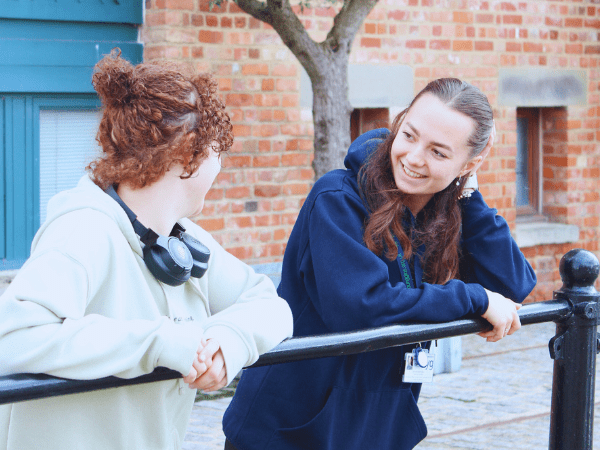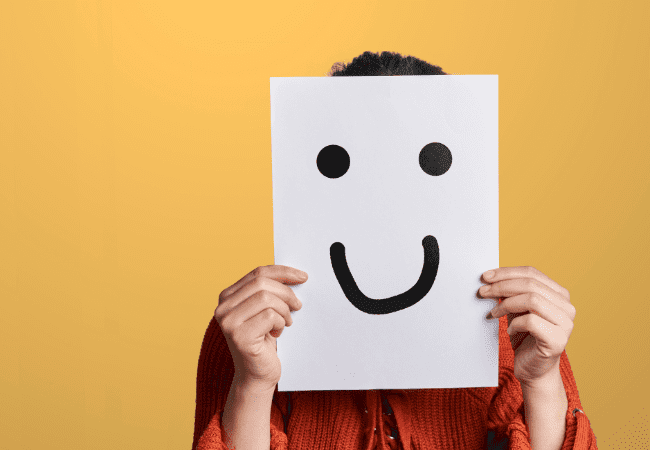
Fran Credicott, Mental Health Youth Worker with YG discusses her use of social media and how it can be used for good.
9 January 2020
“My job is to support young people with the practical side of taking care of their mental health. That can be anything from talking about coping mechanisms or ways to make room in your life for things that help you to feel good.
“Something young people come to talk to me about a lot is social media – love it, or hate it, there really is no escape from it. Young people often get themselves tied up in online arguments, relationships that that don’t measure up to reality, hours of envy and comparison often with people they have never met. It’s a tricky old world and one that I have not always been able to master myself.
“I would say I’m quite a heavy user of social media, I’m on it every day (my guilty pleasure of choice is Instagram) but I’m ok with that – because I have learnt to use it for good (as opposed to evil!) The things I look at don’t bring me down or make me feel negative. But it’s not always been that way…
“I use to spend a lot of time trawling travel blogs, looking at friends or even people I barely knew, comparing what I was doing to them. They were doing all kinds of cool stuff and I wasn’t. I was just looking at it online. I felt jealous and resentful.
“When I had my daughter my world changed completely and even my perspective on social media. I found myself using it more than ever – at home alone with my new baby. Every Tom. Dick and Harry got in touch, liking pictures of my gorgeous girl. All of a sudden I thought, you know what you’re not going to get a window into my life through social media if you don’t make the effort in real life. I became really conscious of posting pictures of her – imagining people who I use to know flashing her image around. Anything could happen to her pictures and it wasn’t even her choice to share them.
“I started to lock down my use. I had a big-fat-cull of my ‘friends.’ I followed the rule that if I wouldn’t want to meet up with you in real life you probably shouldn’t be in my list of connections. I reviewed all my security settings and increased the privacy on my accounts.
“I started to become really conscious of how people behave on social media and even dedicated my dissertation to online stalking. It’s shocking how we allow behaviours online that we would never accept in real life. When you start questioning the posts you are looking at, the façade of social media begins to come away. Try asking yourself ‘why are they posting that content?’ Is it just for likes or to impress others? Blooming ‘bragbook.’ Many posts begin to feel contrite. Especially if you know the real person and the reality behind the post. You can’t edit yourself in real life.
“It’s no wonder that research has shown that social media can lead young people to make unhelpful comparisons between themselves and the people on their newsfeed. The impact of these damaging comparisons is often associated with negative self-esteem, loneliness and ‘the fear of missing out’ which can all contribute to poor mental health.¹ ² Social media can also put pressure on young people to always be ‘contactable’³ and feeling they need to constantly check their notifications – even during the middle of the night. This behaviour can easily to lead to a social media addiction and disturbed sleep – and a lack of quality sleep is often linked to poor mental health.
“However, social media can actually be used to boost your mental health and self-esteem, when you know how to use it for this purpose.
My top tips for making social media a positive influence in your life.
- First off have a good review of who you follow and who you allow to follow you. Make sure that everyone you follow online makes you feel empowered, positive, makes you laugh or makes you feel good. Remove anyone who fails to make you feel anything but good about yourself.
- Set yourself a time limit of how long you want to spend scrolling. Use your phone to set a time limit so you don’t accidentally end up losing hours of your day.
- Make sure that you follow people who share realistic images of themselves that don’t make you feel badly about yourself or your body.
- Remind yourself often, that people only post images of themselves that they deem as ‘perfect’ not ‘realistic.’ Keep in mind that most celebrities have access to personal trainers, hair and make-up teams and software that allows them to alter their photos to ‘perfection.’
“Finally, ensure you are following pages that offer either mental health support or regularly share positive messages so you benefit from the daily reminders to look after your mental health. Below are some of my favourites on Instagram;
- @thehappynewspaper – run by Emily Coxhead, who has created a ‘real newspaper to share positive news and wonderful people.’
- @asktwicecampaign – Not only is it a brilliant campaign, but they post daily support and insight about managing your mental health.
- @giveusashoutinsta who offer support to anyone struggling with mental health – you can text them with the word SHOUT to 85258 if you need crisis support.
- #textsfrommydog – I follow this hashtag as it frequently makes me laugh out loud and what better remedy to a ruff day than having a laugh.”
Sources:
- Centre for Mental Health, 2018
- Casale & Fioravanti, 2015
- Turkle, 2011
- Scott et al. 2016
You may also like...
The Story of an Arcus Family

Supporting Ukrainian Refugees

Understanding the ‘Hidden Victims of Crime’ Project

World Suicide Prevention Day 2024

